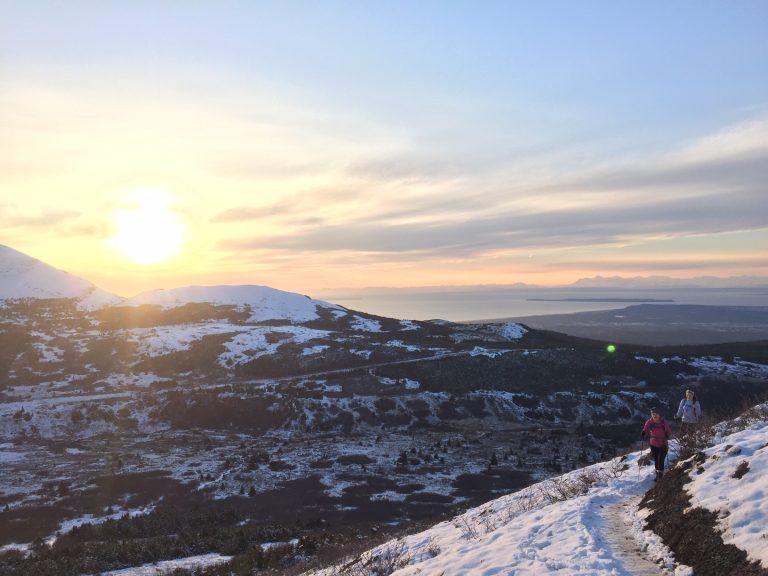
The Western Governors' Association keeps you updated on the latest news in the West. Here are the top stories for the week starting Oct. 19, 2020. Photo courtesy of WGA’s Toolkit for Invasive Grass Management in the West.
Invasive annual grasses such as cheatgrass, ventenata and medusa head are changing the relationship between rangelands, drought, and wildfire in Wyoming and much of the West.
“They create these really thick patches that are then able then to catch fire and cause more problems by creating these large fires that wouldn’t happen because we typically have what we call interspace in those plants so that the fires don’t spread all that well,” Dan Tekiela, an invasive plant extension specialist at University of Wyoming, told Wyoming Public Media.
To make matters worse, the West is in the midst of its worst drought since 2013, only further increasing the likelihood of devastating and destructive wildfires, like the historic blazes that have ripped through California, Oregon, Washington and Colorado this year. More.
Western Governors have been working on this issue for some time and recently released a Toolkit for Invasive Grass Management in the West.
Out of this World: Lockheed Martin Space Systems engineers working out of a facility in Littleton, Colorado recently celebrated the completion on Oct. 20 of their OSIRIS-REx mission, The Colorado Sun reports. The goal of the mission, now four years in the making, was to collect a sample of dirt from the asteroid Bennu, which scientists hope will give them a glimpse into the origins of the universe and life on earth. “We wanted pristine, carbon-rich asteroids that would unlock clues to the formation of the solar system, unlike Earth and life as we know it today,” said Heather Enos, OSIRIS-REx’s deputy principal investigator. “And we do have good ground-based evidence that Bennu is a carbon-rich asteroid. So, it became our choice for sample collection.” More.
American Indian Studies: The Institute of American Indian Studies at the University of South Dakota (USD) is being revitalized after decades of funding cuts left it largely inactive. According to South Dakota Public Broadcasting, the Institute founded in 1955 by state lawmakers was designed to support Native students and promote research in tribal histories and cultures. In order to help the Institute fulfill its intended purpose, USD President Sheila Gestring recently announced a new director, tribal liaison, a post-doctorate research fellow, and creation of an oral history center. “The Anglo-American historical establishment, which is where I come from, hasn’t always understood the true value of oral histories," said USD Provost Kurt Hackemer. "We tend to prefer documents — things that are written down.” In addition to the Institute’s revitalization, USD will also offer more than $80,000 in scholarships to Native students. More.
Minority Businesses: Because minority-owned businesses have suffered disproportionate hardship as a result of the COVID-influenced economic slowdown, Oklahoma City officials are utilizing CARES Act funding to establish a $2.75 million minority small business assistance program, GOVERNING Magazine reports. "While we know that minority-owned businesses play a vital role in our economy," said Maurianna Adams, director of Progress OKC. "It isn't always straight forward for them on how to obtain means for success for various reasons." The U.S. Chamber of Commerce in August released data that showed minority-owned businesses faced a 13% denial rate for pandemic loans, whereas their non-minority counterparts had a denial rate of only 8%. Consequently, the new assistance program will target businesses that have a 51% consulting and management interest from owners who are either African American or Black, Native American, Hispanic or Latino, Asian Pacific or Asian Indian. More.
 Hiking Trail: A crowd of about two dozen trail workers, officials, hikers, and donors recently gathered in Alaska’s Chugach State Park to celebrate the inauguration of a new trail at one of Anchorage’s most popular hiking spots. “With all this craziness going on, it’s nice to see an opportunity out here,” Kurt Hensel, superintendent of Chugach State Park, told Alaska Public Media. “And this is a place where folks can get away from it and have a good connection with the environment.” The new trail – made possible by citizen donations and CARES Act funding – was designed to replace a heavily eroding path leading from the Glen Alps parking lot to the “Ball Fields” below O’Malley Peak. It is the first part of a two-phase project that is expected to be completed in 2021. More.
Hiking Trail: A crowd of about two dozen trail workers, officials, hikers, and donors recently gathered in Alaska’s Chugach State Park to celebrate the inauguration of a new trail at one of Anchorage’s most popular hiking spots. “With all this craziness going on, it’s nice to see an opportunity out here,” Kurt Hensel, superintendent of Chugach State Park, told Alaska Public Media. “And this is a place where folks can get away from it and have a good connection with the environment.” The new trail – made possible by citizen donations and CARES Act funding – was designed to replace a heavily eroding path leading from the Glen Alps parking lot to the “Ball Fields” below O’Malley Peak. It is the first part of a two-phase project that is expected to be completed in 2021. More.
Click here for the latest wildfire updates in your state.
ICYMI: COVID-19 in the West: A state-by-state breakdown of the Governors’ work (updated regularly)
Get the latest news about the West and its governors by following the Western Governors' Association on Twitter, Facebook and LinkedIn.
Check out our podcast, Out West, on Podbean, Spotify and Apple Podcasts